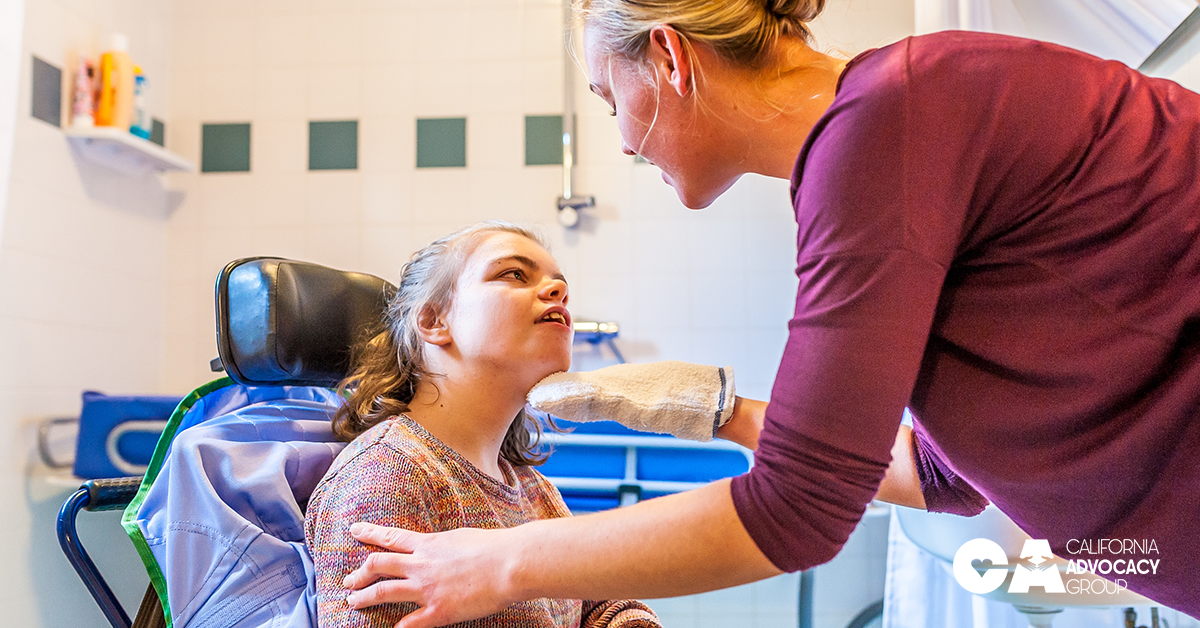We Are the Voice for Families That Need to Be Heard
California Advocacy Group specializes in handling IHSS appeals for individuals of all ages in every county in California, ensuring families receive the support and services they need.
Founders Judith Kogan and Eric Weingrad bring not only professional expertise as seasoned advocates but also a deep personal connection to their work. As parents of children with special needs, they have firsthand experience navigating the complex and often overwhelming systems families face. Their passion and commitment to supporting others stem directly from their own journeys advocating for their loved ones.
They get it. They get every part of this confusing and seemingly broken process. California Advocacy Group is not just advocating for your loved one’s rights to services, they are fighting for your family's right to have a bright future.
Whether your loved one is a child, adult, or senior, California Advocacy Group is here to help.
EMAIL US DIRECLTY at support@caadvocacygroup.com

Jessica B., San Diego, CA

Jake C., Anaheim, CA
![I can't thank you both enough for your support during this whole process. I could not imagine being in that situation without [Judy] and Eric.](https://images.squarespace-cdn.com/content/v1/5ad6402f5ffd20f9123866b1/1528922587046-QS4CFBERLBA2EEMHNPEU/3.png)
Jody L. Northridge, CA

Cheryl M., Lancaster, CA

Melinda B., Temecula, CA

Kathleen M., Los Angeles, CA


![I can't thank you both enough for your support during this whole process. I could not imagine being in that situation without [Judy] and Eric.](https://images.squarespace-cdn.com/content/v1/5ad6402f5ffd20f9123866b1/1528922587046-QS4CFBERLBA2EEMHNPEU/3.png)



Our Services
We work closely with families and legal guardians of individuals with disabilities—of all ages—to advocate on their behalf, help secure retroactive IHSS benefits, educate and support caregivers about their rights, and inspire future self-advocacy. Our goal is to ensure families can achieve—and maintain—a fulfilling quality of life by accessing the services and programs available to qualified residents of California.
Should You Use An Advocate?
We often hear this question, and it’s a topic that sparks strong opinions across social platforms. The reason? Misinformation. And we completely understand why it causes confusion.
We firmly believe an empowered special needs parent is the best kind. For the parents out there who understand the health care system forward and backwards, we salute you. To the other 99%, this might interest you.
“Believing in a child’s potential is the single, most important thing parents can do for their child. For me, the greatest joy is watching a child blossom into their real and full potential. ”
Caregiving is an act of love—but love requires energy, intention, and replenishment. Protecting your own well-being is not a luxury; it is a sustainable way to continue caring for others effectively. Begin with one small change today. Your future self—and the person you support—will benefit from the care you invest in yourself.
Family caregivers are holding up our healthcare system with sheer grit and love — often unpaid, undertrained, and overwhelmed. They’re caring for parents with dementia, kids with disabilities, or spouses in recovery, all while managing jobs, households, and their own well-being. If you're thinking about building a business to support this community, you’re not just meeting a market need — you’re entering a space that demands empathy, clarity, and commitment. The best businesses in this arena don’t just offer solutions — they offer relief. Start by listening more than you pitch, speak like a human, and above all, design with burnout in mind.
House-hunting with accessibility needs isn't just hard—it’s a strategic, emotional journey. Learn how to spot red flags, push for what matters, and find a home that works for your real life, not just a Pinterest board.
A rigid 9-to-5 schedule might not work when you're juggling doctor appointments, therapy sessions, or school meetings. Exploring flexible work options—like remote positions, part-time hours, or job-sharing—can be a game changer.
Juggling the demands of caring for a child with special needs doesn't have to come at the cost of neglecting your well-being. By planning and utilizing self-care strategies, caregivers can nurture their health while continuing to provide quality assistance.
These days, more parents are working from home than ever before. It is great to have a work/life balance that allows you to be with your kids. However, the issue can be when you really need to get work done, and you have a toddler or baby in the next room.
You want to do all you can to see your child succeed. From taking classes in education to exploring at-home activities, there are plenty of ways to help. Try these tips to get your little one excited about learning again.
The following resources from the California Advocacy Group are packed with all the information you need to create a safe backyard space for a child on the autism spectrum.
Children with learning disabilities may struggle or become frustrated with education, but finding an interest in the arts can help ignite the passion to overcome such obstacles.
To become a parent-provider you must complete these simple steps outlined here within 90 days from the date you start the process.
When a Medi-Cal service you want is not approved by a Medi-Cal field office or your managed care plan, you have the right to ask for a state hearing.
There’s a lot of confusion about “Protective Supervision” within IHSS and that’s typically because parents are often misled as to what the program actually covers.
The Early Start program is California's early intervention program for infants and toddlers with disabilities solely operated by local regional centers.
The goal of the IHSS program is to allow consumers to live safely in their own home and avoid the need for out of home care, so to qualify a child must require some form of in-home care.
Typically, domestic and related services are comprised of non-skilled tasks that do not demand a licensed healthcare professional to prescribe or order.
Paramedical services are skilled tasks that the child’s doctor or nurse has taught the provider to do, such as the administration of medications, puncturing the skin to give a shot, or inserting a medical device into a body orifice such as tube feeding.
In general, CCS covers medical conditions that are physically disabling or require medical, surgical, or rehabilitative services.
The biggest advantage to obtaining full scope Medi-Cal coverage through "Institutional Deeming" is that your child will be eligible for all approved Medi-Cal services, including medical, dental, and even Early and Periodic Screening Diagnosis and Treatment services.
It's a question our founders once asked themselves when they were personally faced with the insurmountable task of navigating the world of special needs care for their respective children.
Medi-Cal pays for a host of medically necessary things from medical treatments to medications to hospitalization and in-home skilled nursing care.


























